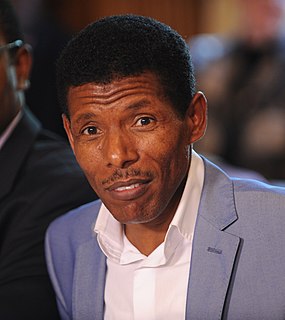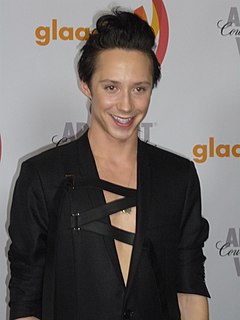A Quote by Haile Gebrselassie
I wanted to be famous. I wanted people to talk about me.
Related Quotes
I went to New York. I had a dream. I wanted to be a big star, I didn’t know anybody, I wanted to dance, I wanted to sing, I wanted to do all those things, I wanted to make people happy, I wanted to be famous, I wanted everybody to love me. I wanted to be a star. I worked really hard, and my dream came true.
Longing surged up within me. I wanted it. Oh God, I wanted it. I didn't want to hear Jerome chastise me for my "all lowlifes, all the time" seduction policy. I wanted to come home and tell someone about my day. I wanted to go out dancing on the weekends. I wanted to take vacations together. I wanted someone to hold me when I was upset, when the ups and downs of the world pushed me too far. I wanted someone to love.
I have a general feeling that writers and artists who are in this peculiar situation, of being a persecuted artist, all anyone ever asks about is the persecution. It may well be that's the last thing in the world they want to talk about. There were many years in which every journalist in the world wanted to talk to me, but nobody wanted to talk to me about my work. That felt deeply frustrating because I felt there was an attempt to stifle me as an artist. The best revenge I could have was to write.





































